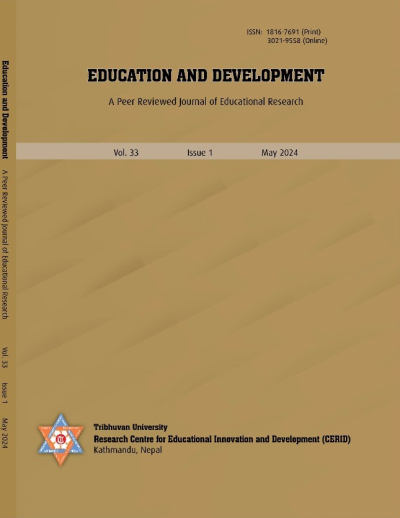Parental Migration and Mental Health Status of the Left- behind
DOI:
https://doi.org/10.3126/ed.v33i1.66604Keywords:
abnormal behavior, caregiver, left-behind children, mental health status, parental migrationAbstract
This study aimed to investigate the factors associated with the mental health status of children left behind. The study employed a cross-sectional quantitative design based on data collected from 560 children from both migrant and non-migrant households using multistage sampling techniques. The Goodman’s Strengths and Difficulties Questionnaire (SDQ) was applied to assess their mental health, which was analyzed through univariate, bivariate, and multivariate methods. About 8 percent of the children exhibited poor psychological well-being, with a higher prevalence among those from the migrant households (11%) compared to the non-migrant households (5%). The logistic regression models indicated that the children of the migrant parents were 2.3 to 2.7 times more likely to have abnormal behavior compared to those of the non-migrant parents. Similarly, the Dalit caste/ethnic group children were 3.4 times more likely to exhibit abnormal behavior as opposed to the Janajati ethnic group children, while children cared for by someone other than their mother were 8 times more likely to have abnormal behavior.The children's abnormal mental health status was statistically linked to parental migration (p<0.01). Mental health variations were observed across various factors, with a majority of the affected children associated with caste/ethnicity, caregivers, and household support. This suggests that there is an urgent need for establishing psychosocial counseling services in schools, particularly targeting the left-behind children from the Dalit caste/ethnic group, those under the care of someone other than their mothers, and those provided with additional household support.
Downloads
Downloads
Published
How to Cite
Issue
Section
License
Copyright (c) 2024 Author

This work is licensed under a Creative Commons Attribution-NonCommercial 4.0 International License.
CC BY-NC 4.0. This license requires that reusers give credit to the creator. It allows reusers to distribute, remix, adapt, and build upon the material in any medium or format, for noncommercial purposes only.




